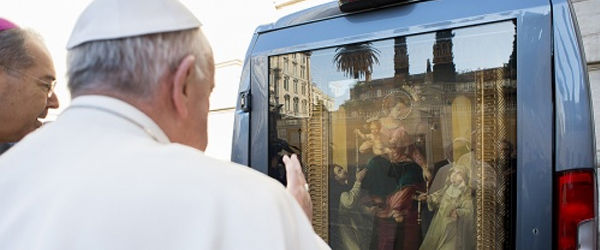The reconciliation of personal liberties with religious liberties, played out over myriad stages across multiple generations, has been hard to reach, according to panelists at a Nov. 14 forum sponsored by the Federalist Society.The topics touched upon during the forum included not only contemporary issues such as same-sex marriage, abortion and the HHS contraceptive mandate in the Affordable Care Act, but a long-ago Supreme Court case and civil rights.William Galston, a senior fellow at the Brookings Institution and formerly a top domestic policy adviser to President Bill Clinton, said Supreme Court Justice Antonin Scalia's majority opinion was incorrect in the 1990 case Employment Division v. Smith, in which the high court said the government's right to legislate against drug use superseded the right of American Indians to use peyote, an illegal substance, in religious ceremonies.If Scalia "was transported back in time" to sit on the high court in the 1920s and had heard a challenge to the religious exemption allowing for the use of sacramental wine in the Volstead Act, which ushered in Prohibition, the same argument "would have been applied" against Catholic clergy following the Code of Canon Law as well as Jewish families observing the Torah with a Passover Seder meal.The Supreme Court decision — interpreted as giving government broad powers to the detriment of religious practices — was effectively nullified with the passage of the Religious Freedom Restoration Act in 1993.Kyle Duncan, general counsel for the Becket Fund for Religious Liberty, noted there have been 80 cases with roughly 200 plaintiffs challenging on moral grounds the HHS mandate that requires employers, including most religious employers, to provide coverage of abortion-inducing drugs, sterilizations and contraceptives in their employee health plans. Catholic dioceses and colleges and other religious entities are among the plaintiffs as are some for-profit companies.The Becket Fund has represented some of the employers seeking to overturn the HHS mandate. Five district courts have rendered decisions thus far. Three courts have enjoined the government from pursuing punitive actions against the employers, while two others declined to do so.The U.S. Supreme Court Nov. 26 will consider whether to review one or more lower court rulings over requirements of the health care law.One issue to be resolved is whether for-profit secular corporations can claim a religious exemption in the same manner as the individuals running those corporations. "We know they have free speech (rights)," Duncan said of corporations. "Whether they have religious rights, we'll see."Andrew Koppelman, the John Paul Stevens professor of law at Northwestern University in Evanston, Ill., a Chicago suburb, voiced his belief that individual rights and religious exemptions could both be expanded at the same time.Koppelman took the case of Elane Photography, a New Mexico photo studio that refused on religious grounds a request to shoot a same-sex commitment ceremony. No jurisdiction in the state recognized same-sex unions until Aug. 22, one day before the state's Supreme Court ruled unanimously that Elane had violated that state's Human Rights Act, setting up a six-figure damages award plus the plaintiff's legal fees."I want to create a climate where it's safe to be a religious dissenter," Koppelman said. America is big enough to accommodate individuals and groups on both sides of a cultural divide," so some other photo studio should be easy enough to find. But by the same token, he added, "there can't be too many Elanes, and they'd have to be quiet about it," not boasting that they're denying services to individuals and groups by upholding their own religious principles or conscience.Robert George, a professor of jurisprudence at Princeton University, expressed the deepest pessimism that some common ground would be reached among partisans on both sides of the cultural divide."Can't we all get along? No, we can't get along," George said, because in grant rights such as abortion or in allowing same-sex couples to wed, that part of the population opposed to expansion of those rights are injured.Moreover, there is "no grand bargain between sides," especially in the same-sex marriage debate, George said, adding later that for social conservatives to have exceptions carved out for them, "first the liberals have to win." He cited as his examples talks at the state legislative level over same-sex marriage that failed at achieving such a bargain.George alluded to fears that pro-life Americans would be marginalized after the 1973 Roe v. Wade and Doe v. Bolton decisions that legalized abortion virtually on demand across the United States. "we have had 40 years — more than 40 years — since Roe vs. Wade, and the battle is still joined," he said.He complained that supporters of legal abortion and same-sex marriage often use the word "bigoted" to describe their opponents.After Duncan said forcing employers to violate their conscience by including contraceptive coverage in their employee health plans would be akin to forcing a Jewish deli to serve pork, Galston offered analogies of his own.Would it be the same, he wondered, as letting employers who are Jehovah Witnesses offer health coverage that didn't include blood transfusions, as that is one element of their religion's belief system? Or for employers who are Christian Scientists to deny treatments "most of us consider normal medicine," he queried, because it did not fit in with Christian Science practice?To underscore his point, Galston said all religious exemptions may not be deserving of the status given them in the current climate. "Some people who believed in racial separation did so on religious grounds," he said, but as a nation, "we made a collective decision that a certain practice no longer could be allowed."George, after questioning from an audience member, agreed. "The regime and its legacy" that fostered slavery and then the Jim Crow laws that weakened African-Americans' status in American life "had to be smashed from a legal and moral point of view," he said.—CNS

